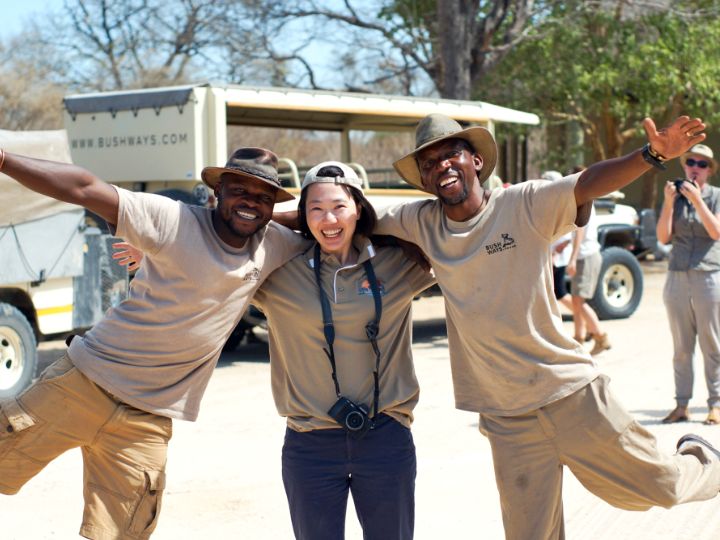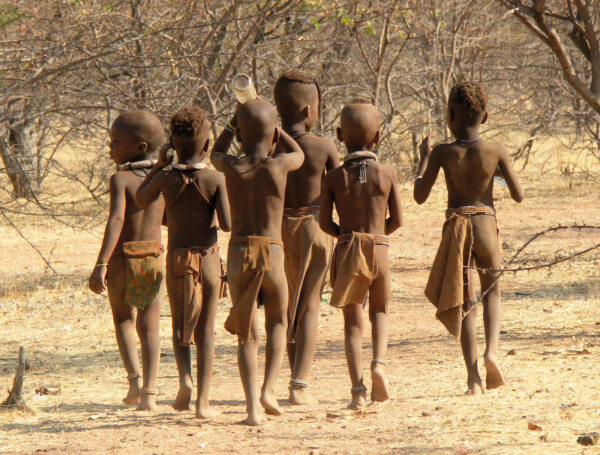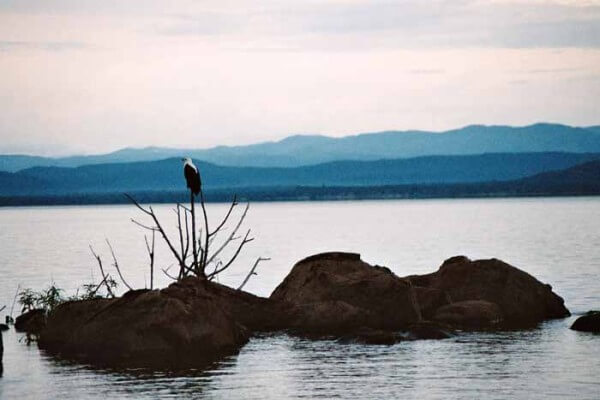In terms of volume, Lake Kariba is the largest artificial lake and reservoir. It is situated approximately 1,300 kilometres upstream from the Indian Ocean, along the border that runs between Zambia and Zimbabwe. Water filled Lake Kariba between the years of 1958 and 1963, after the completion of the Kariba Dam at its north-eastern end, which also resulted in the overflowing of the Kariba Gorge on the Zambezi River.
Kariba is a Zimbabwean town that was initially established for construction workers on the Lake’s dam. However, other settlements such as Binga village and Mlibizi in Zimbabwe, and Siavonga and Sinazongwe in Zambia, have developed into areas that house local folk who have been displaced due to rising waters.
Lake Kariba stretches more than 220 kilometres in length and is up to 40 kilometres wide. It spreads over an area of 5,580 square kilometres and has an average depth of 29 metres (97 metres at its deepest point). It is the biggest human-built reservoir in the world, and is four times as big as the Three Gorges Dam. The massive amounts of water within the Lake is thought to have caused induced seismicity in the seismically active area, including more than twenty earthquakes that reached more than 5 on the Richter Scale.
Before Lake Kariba was filled, the existing vegetation was burned, forming a thick layer of rich soil on land that later became the Lake bed. As a result of this, Lake Kariba’s ecology has become incredibly vibrant. A fair amount of fish species have been introduced into the waters of the lake, including the sardine-like kapentra that is transported from Lake Tanganyika. It is because of this that the Lake now supports a flourishing commercial fishery. Other animals of the Lake include Nile crocodiles and hippo.
Game fish (tigerfish in particular, which were among the indigenous species of the Zambezi river system) now thrive on the kapenta, which in turn encourages tourism. Both Zambia and Zimbabwe are currently in the process of growing the tourism industry along their respective shores of Lake Kariba. Birds that roam the coastlines include fish eagles, cormorants and other water birds, as well as the occasional elephant herd.
Kariba is a magical place of astonishing splendour settled in lush mountains, boasting a fantastic inland sea, and protected by massive reserves of game. It is raw and pure natural beauty at its finest. It is a treat observing the animals that wander to the Lake’s edge every day, or watching groups of wet-skinned elephants enjoying themselves on the green floodplains. Perhaps the best part of visiting this stunning region is the sight of the vividly crimson African sun slipping into the crisp, clear darkness of the night and the countless sparkling stars in the sky.
The locals have grown to truly respect the Lake, which has now become a vacation paradise for Zimbabweans and travellers alike. The wildlife is in abundance, giving you plenty of opportunities for fantastic game viewing. Elephants can often be spotted swimming between the shore and the islands, which is truly an unforgettable sight, unique to the area. Lake Kariba offers entertainment, relaxation, sports and adventure throughout the year, making it a highlight for any visitor.





0 Comments